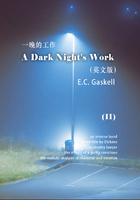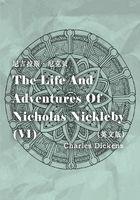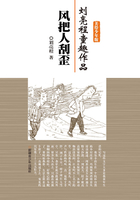The Laws of Nature and the Nature of Law
The Nile perch is among the largest of freshwater fish, capable of achieving a length of more than 6 feet and a weight of more than 400 pounds. The perch is native to the sub-Sahara and is found not only in the Nile but also in the Congo, the Niger, and other rivers, as well as in Lake Chad and other major basins. For more than half a century, however, it also has been found in Lake Victoria in east Africa, where it is not native, and where it has subsequently become one of the best-known examples of the unintended consequences of introducing a species to an ecosystem. A brilliant documentary by Hubert Sauper, Darwin's Nightmare, made this story known to a wide public in 2004.
As a top-level predator of extraordinary size, might, and greed, the perch will eat most anything, including its own species. It has a potential life span of sixteen years, giving it enormous potential for ongoing destruction. Its introduction by humans to Lake Victoria for commercial harvest has caused the disappearance of most of the endemic species in the lake and has created disastrous social and economic consequences. For instance, large-scale fishing operations, typically geared toward export, have robbed many local people of their traditional livelihood in the fishing trades. Towns along the lakeshore arose to service fishery workers, but these towns offer little in the way of basic services such as water or electricity. Local people who have not been assimilated into the new local cash economy have been forced to leave their homes in search of work. Prostitution, AIDS, and drug abuse by street children are rampant. Moreover, the Nile perch cannot be sun-dried in the traditional way but instead must be preserved through smoking, which has caused a severe depletion of firewood in the region.
It is difficult to find a better metaphor for the impact of the modern economic and legal paradigm on a local community. Across the world, over and over again, this paradigm of short-term extraction, state sovereignty, and private ownership fueled by money (itself a legal abstraction concentrated in the private hands of corporate banks) has produced huge benefits to a few at the expense of the environment and local communities. State and capitalist ownership, most notably the modern transnational corporation, not unlike the Nile perch itself, displays cannibalistic tendencies, with various players eating each other by way of war or takeover.[1]
Similar examples can be found all over the world. In the Pacific Northwest, a century of extractive clear-cutting practices in forestry have devastated the landscape, silted streams, and endangered salmon habitat. As the trees have disappeared, so have many local livelihoods. In California and across the West and Southwest, the overuse of water for growing desert populations and industrial agriculture has resulted in depleted aquifers and over-stressed watersheds, worsening the effects of drought and threatening livelihoods and food security. Across the world, food shortages, disease, and overpopulation, often resulting from short-term economic incentives or other human action, have played a part in creating income disparity and environmental degradation.[2]
Just as the Nile perch has devastated its new environment and may potentially eat itself out of Lake Victoria, it is no exaggeration to say that human civilization, together with many higher forms of life, may disappear from the planet unless we can reverse our extractive, destructive ways in time. Nor is it too far-fetched an idea to see modern capitalist institutions behaving as the Nile perch in many places of this world. For instance, the disruption caused by the development projects of global corporations to attract rich tourists in the global south is never taken into consideration by the celebrative narratives of the development and economic growth they produce.
But deciding on a remedy first requires understanding how this system came about. We did not end up with our current shortsighted economic and political system by accident, although, as we shall see, it wasn't quite planned, either. Our main thesis in this book, as stated in our Preface, is that jurisprudence (the theory of law), together with science, has contributed significantly to the mechanistic modern worldview. Because modernity, at least since the seventeenth century, has produced the materialistic orientation and extractive mentality of the Industrial Age, which lies at the roots of today's global crisis, both scientists and jurists must share some responsibility for the current state of the world. As we explore the relationship between science and law, we shall discover that jurisprudence is an intellectual discipline with a history and a conceptual structure that show surprising parallels to those of natural science. We shall also see that their mutual interactions evolved over time, as did the relationship between the "laws of nature" and human laws.
In science, the mechanistic paradigm that began in the sixteenth and seventeenth centuries includes an emphasis on quantification, introduced by Galileo Galilei, and on the human domination of nature, championed by Francis Bacon; the view of the material world as a machine, separate from the mind, advanced by René Descartes; Isaac Newton's concept of objective, unchangeable "laws of nature"; and a rationalist, atomistic view of society promoted by John Locke.
In jurisprudence, the rationalist, mechanistic paradigm, developed by seventeenth-century jurists like Hugo Grotius and Jean Domat, views reality as an aggregate of discrete definable components, owners whose individual rights are protected by the state. Indeed, ownership and state sovereignty, respectively championed by John Locke and Thomas Hobbes, are the two organizing principles of legal modernity.[3] Moreover, still in the Cartesian tradition, the law is seen as an "objective" framework separate from the individual subject.
During the past three decades, a radically new paradigm has emerged at the forefront of science.[4] At the heart of this change of paradigms from a mechanistic to a holistic and ecological world-view we find a profound change of metaphor: from seeing the world as a machine to understanding it as a network. Networks, of course, are patterns of relationships; hence, understanding life in terms of networks requires an ability to think in terms of relationships and patterns. In science, this new way of thinking is known as "systems thinking," or systemic thinking. We have also realized that nature sustains life through a set of ecological principles that are generative rather than extractive.
A corresponding paradigm shift has not yet happened either in jurisprudence or in the public understanding of law. Such a shift is now urgently needed, since the major problems of our time are systemic problems-all interconnected and interdependent-and our global crisis is an ecological crisis in the broadest sense of the term.
In this book, we call for a profound change of legal paradigms, leading to a new "ecology of law." At the heart of this new ecological legal order lies a view of social reality not as being an aggregate of individual "building blocks" but rather as being composed of social networks and communities. Law, in this view, is not an objective structure, but emerges from actively engaged citizen and legal communities as the legal embodiment of their self-organization.[5]
FROM HOLISM TO MECHANISM
Until the end of the Middle Ages, cultures around the world observed nature very closely and adapted their way of life accordingly. Their observations were often couched in religious or mythological language, and, in general, nature and its laws were seen as emanating from God or some other divine power. These beliefs implied rules for human behavior that everyone was expected to follow; even law itself was a deeply spiritual concept, based on obligation and on the proper role of an individual within a community and in relation to the life-sustaining earth.[6] The Latin term agriculture, or "cultivation of the land," reflects this deep sense of obligation, which was perceived as a process of creation and generation through labor, knowledge, and skill, and certainly not as a process of extracting "value."
This early holistic, communal conception of the universe and the planet continued to be dominant until the Scientific Revolution of the sixteenth and seventeenth centuries, which championed the study of matter and brought forth the mechanistic science of Galileo, Descartes, and Newton. Nature was now seen as a machine made up of discrete, measurable parts. Galileo postulated that scientists should restrict themselves to studying the measurable, quantifiable properties of material bodies, such as shape, number, and movement. Other qualitative properties, such as color, sound, taste, or smell, were merely subjective mental projections and should be excluded from the domain of science and its goal of describing nature in mathematical terms.
Galileo's strategy of directing scientists' attention to the quantifiable properties of matter proved extremely successful in classical physics, but also exacted a heavy toll. During the centuries after Galileo, the focus on quantities was extended from the study of matter to all natural and social phenomena. The subsequent mechanistic scientific worldview of Descartes and Newton, in addition to excluding qualitative properties, also omitted more complex qualities, such as beauty, health, or ethical sensibility. The emphasis on quantification prevented scientists for several centuries from understanding many essential properties of life.
POWER IN SCIENCE AND LAW
As the holistic view of nature was replaced by the metaphor of the world as a machine, the goal of science became knowledge that could be used to dominate and control nature. A similar movement was afoot in legal thought. Jurists like Grotius and Domat, both contemporaries of Descartes, promoted the view of reality as an aggregate of discrete definable components (free individual actors), and ownership as an individual right, guaranteed by the state, to develop nature, that is, to transform it into physical objects. Indeed, ownership and state sovereignty-championed in the seventeenth century by John Locke and Thomas Hobbes, respectively-are the two organizing principles of legal modernity, known to jurists also as legal absolutism.[7] At the same time, law began to be seen as an "objective" framework separated from its interpreter-another legacy of Descartes that is still present in today's legal thinking.
The human dominance of nature advocated by lawyer and scientist Francis Bacon has produced the ongoing exploitation and destruction of nature with ever more powerful technologies.[8] The world of Bacon and his contemporaries was characterized by a tremendous abundance of common resources, such as forests and fisheries, and of communal institutions, such as professional guilds and village structures, known collectively as the commons. The capital needed to develop manufacturing and industry was dramatically scarce. Institutions such as individual private property, stock corporations, and sovereign states-and also general freedom of contract and fault liability-were created to transform some of these commons into concentrated capital. The success of this institutional scheme has been staggering. In less than three hundred years the conditions have been reversed: today we experience a dramatic scarcity of commons and an overabundance of capital.[9]
The law has played a fundamental role in "naturalizing" this power.[10] The sovereign state and the sovereign private owner have acted as two mighty allies in the destruction of the previous legal order based on social relationship and the adaptation of humans to the ecological requirements of nature. Law has served as an instrument of human domination over nature, incrementally pushing people away from participating in nature's reproductive processes, overcoming the old medieval organic wisdom. Henceforth, nature was seen as "belonging" to humankind, and nature's main purpose was deemed the satisfaction of human needs. While the daily experience of life in traditional agricultural civilizations, hard and brutish as it might have been, linked human communities to the land and sustained a symbiotic relationship with it, law and science converged with the rise of modernity to intellectually contrast humankind with all other creatures, "freeing" humans from our ecological chains. Other creatures were seen to live in a "state of nature," but humans no longer belonged to the same category. Through science, humans could understand nature; through technology, we could transform it; and through the legal institutions of property and sovereignty, nature's essence could be transformed into a commodity, a physical object that humans could exploit or "improve."[11]
Today, the current mainstream vision is essentially the same, which is why most people considered it "natural"-legal and even beneficial to development and growth-to introduce the Nile perch to Lake Victoria. The general public broadly shares the conviction that, in relation to a common holding such as a lake or any other potentially profitable resource, the natural self-interested behavior is to benefit from it by extracting value. Introducing the Nile perch, developing an uncontaminated cove, digging Alaska for oil, and fracking the land are all exercises of economic freedom protected by private property, which grants sovereignty to individuals. The only agent that can check such freedom is the sovereign state in a zero-sum equation between the two (more state government equals less freedom of property; more freedom equals less government), itself perceived as a law of nature. If the law (an external limit) does not restrict a given action, the rational actor is assumed free to extract. Moreover, these apparently mutually exclusive domains are deemed to be governed by an irrefutable logic: more market equals less state, and more state implies less market.
MARKET AND STATE
This mechanistic vision of property and sovereignty is responsible for the dramatic state of affairs on our planet. Property rights, granting power to corporations and supported by the state, made it natural for BP to increase profits by neglecting various safety measures on its Deepwater Horizon oil rig, which resulted in the devastating pollution of the Gulf of Mexico; and for Exxon to avoid fixing the radar on the Exxon Valdez, leading to the destruction of the ecosystem of Prince William Sound in Alaska. Through this culturally constructed mechanism of free extraction, the subprime mortgage bubble was produced, AIDS and malaria have remained untreated in Africa, arms trafficking is rampant, and financial "creativity" has endangered the lives of many people. The concentration of power in state institutions determined the nuclear catastrophes of Chernobyl and Fukushima; and the view of nature as a machine, to be adapted to human use, has led to the tragedy of Lake Victoria and similar ecological catastrophes.
Modern property rights, as structured, not only determine the behavior of participants in the legal system but also, most importantly, display a remarkable independence even from the power concentrated in governments.[12] When corporations are granted charters that allow them to "live" forever but to legally avoid long-term consequences, they can easily evade their civic responsibilities. The law, built on property rights centered on the individual, has a life of its own and can defeat even the most well-intentioned and mighty forces of change.
Today, all political debates are firmly anchored in the powerful academic discipline of economics, which, by successfully claiming to be an exact science, determines policy making and legislation. Unfortunately, economics still applies a short-term, reductionist, linear, and quantitative bias typical of traditional scientific thought, a consequence of the mechanistic paradigm.[13] Having conquered the legal system through economics, this obsolete mainstream view, rooted in the duopoly of property and state, now fuels our ecologically destructive practices. So-called economic laws produce major distortions because they are based on the assumption that it is natural and desirable for an institution to set growth targets that induce extractive individual behavior while discouraging virtuous practices. For example, if one considers water as just another commodity, the laws of "scarcity" deem it desirable that water should carry a price and not be freely available for human use. Economists make much out of this observation by telling us that the increase of price reduces the amount consumed, so they use an ecological argument to recommend that public water systems be transferred to for-profit corporations. Unfortunately, the laws of "supply and demand" make it natural for a corporation to sell as much of its product as possible in order to grow and prosper. So corporations profit from the excessive lengths of showers that many Western people enjoy. Rather than taking into consideration the long-term need for ecological balance, economic actors "naturally" act to expand their own business opportunities with more investment in producing individual wants by means of advertising, so that the production of useless, environmentally harmful commodities is their top priority.[14] Shampoo companies, for example, promote the desire for long, refreshing showers as a condition of individual self-fulfillment, and mineral water companies induce the need to drink bottled water transported in polluting trucks because it is as much as five hundred times more profitable than tap water. In California, for example, the average cost of tap water is $1.60 per one thousand gallons while the average cost of bottled water is about 560 times higher at 90 cents per one gallon.[15]
The disastrous effects of our laws and economy are rather clear at this point, but this understanding has not affected policy making. Instead, the legal system has cast our unsustainable model of development in stone as property rights. Current political and economic debates are dominated by fragmentation and linear thinking, with an especially unwarranted faith in both technological progress and infinite growth on a finite planet. The idea of "development" is fundamentally quantitative; it is rooted in seventeenth-century notions of "improvement" and today employs the concept of gross domestic product as the measure of social wealth. But development does not recognize that unrestrained extraction and exploitation of natural and human resources is at odds with the fundamental principles of ecology. The violation of these principles has consequences as lethal as ignoring the law of gravity while climbing a mountain, but because the effects are spread across time and often are not located in any specific individual, they are more difficult to vividly depict in the immediate terms that might spur action. Skepticism, very often itself corporate-determined, can thus be alive and well even in the face of such scientific truths as human-induced global warming.[16]
Both the state and the market are determined by human-made law but are presented as natural realities that can be described with scientific rigor as objects of an external world. However, as we will see, rather than being natural, the state and the market are only cultural products. We often lose sight of the fact that they do not represent an immutable status quo but can be, and actually are, changed all the time by human agency. This mutable characteristic of law, if properly harnessed, represents a path away from destruction and toward a generative, ecologically sustainable human endeavor. To take this path, we first need to carefully reassess the current worldviews of science and law.
A NEW SCIENTIFIC PERCEPTION
Over the last three decades, the forefront of science has seen a dramatic change of paradigms from the mechanistic and reductionist worldview of Descartes and Newton to a systemic and ecological worldview. We have discovered that the material world, ultimately, is a network of inseparable patterns of relationships; that the planet as a whole is a living, self-regulating system. The view of the human body as a machine and of the mind as a separate entity is being replaced by one that sees not only the brain but also the immune system, the bodily tissues, and even each cell as a living, cognitive system. Evolution is no longer seen as a competitive struggle for existence, but is rather viewed as a cooperative dance in which creativity and the constant emergence of novelty are the driving forces. With the new emphasis on complexity, networks, and patterns of organization, a new science of qualities is slowly emerging.
At the very heart of this change of paradigms from a mechanistic to a systemic view of life we find a fundamental change of metaphors: from seeing the world as a machine to understanding it as a network. As we have mentioned, a corresponding paradigm shift has not happened in law or in economics. In this book, we plead for a change of the legal paradigm, inspired by the recognition of basic principles of ecology and by the new systemic thinking in contemporary science.
The mechanistic scientific approach has served us, and continues to serve us, very well in many ways-one can still build a bridge using the principles of Newtonian physics, for example. But the limitations of this approach are becoming increasingly clear, particularly in relation to law. By protecting corporate property rights of extraction as natural, we have created a kind of Frankenstein's monster in which individual actors, who are actually the creators of law, no longer seem to have the power to curb the more destructive results that this approach encourages.
Despite the systemic thinking at the forefront of science, the disciplines of law and economics continue to support a short-term vision, viewing reality in a mechanistic way. They put at the center of their vision an atomized and abstract individual owner. This atom can exercise his ownership of the Earth by extracting value from the commons at the expense of others, thus generating the famous metaphor known as the tragedy of the commons, which is a classic example of self-fulfilling prophecy.[17] The dominant concept of ownership as an individual right, protected by the state to allow short-term accumulation and extraction, became the natural building block of the current legal order; as such it has been responsible for crisis after crisis. The current collective perception of law as an "objective" or preexisting framework through which the behavior of the individual atoms can be classified as legal or illegal, far from being "natural," is just a cultural construction of modernity. Modern law thus embodies the Cartesian separation of an objectified legal order-analogous to Descartes's res extensa (the object of thought)-that is essentially separate from the everyday realm of human agency located in the domain of the res cogitans (the thinking subject) (see [chapter 2]).[18]
This state of affairs is not inevitable. Humans were able to employ science and law to transform common holdings into a commodity and then into capital; we also have the ability to reverse this path, transforming some of our now overabundant capital into renewed commons. An ecologically transformed law can transform capital into natural commons by producing a sustained investment into a sharing economy, into ecologically compatible architecture, or into environmental care. Such law could also transform capital into social and cultural commons by protecting the Internet against privatization or by mandating the deployment of systems of generative property law instead of protecting the freedom of extraction.
This process is urgently needed and overdue. It is as simple and revolutionary as the Copernican revolution, which at the dawn of modernity displaced the Earth from the center of the solar system in favor of the Sun as a result of new knowledge. This process requires that we now, as a consequence of our new ecological knowledge, displace the individual owner from the center of the legal system in favor of the commons. To do this we must rethink the most intimate structure of the law to reflect the basic principles of ecology and the new systemic thinking of contemporary science: no mechanistic separation between subject and object; no individual atom, but community and relationship as building blocks of the legal order. The reality follows what we collectively think and do.
The legal order is the most important vehicle through which a worldview is enforced and transformed into social action, and thus human law is also the agency through which we may implement new ideas and values. We must rethink our human laws and their relationship with the laws governing the ecology of a living planet. Such a rethinking, a kind of Copernican revolution in the law, must use nature as a mentor and model, putting the commons and a long-term vision at center stage. We must move from thinking of a "mechanism of law" and move toward an "ecology of law." We shall discuss the nature of such a paradigm shift in law, and compare it to the change of worldview that is now happening in science, in detail in the following chapters. As a kind of preview, the basic points of our argument are summarized in the table on page 13.
PARADIGM SHIFTS IN SCIENCE AND LAW
SCIENCE
LAW
The Mechanistic Paradigm ("World as Machine")
Physical reality is an aggregate of separate building blocks.
Social reality is an aggregate of discrete individuals.
Scientific knowledge is used to dominate and control nature.
Law is used to protect extractive ownership as an individual right.
Scientific truth (the "laws of nature") can be arrived at through reasoning.
Natural law is based on human reason.
Scientific descriptions are objective, independent of the human observer.
Law is an objective framework separate from a human interpreter.
The Systemic, Ecological Paradigm ("World as Network")
Physical reality is a network of inseparable relationships.
Social reality is composed of social networks and communities.
Scientific knowledge ("ecological literacy") is to be used to learn from and cooperate with nature.
The new ecological legal order is to be used by ecoliterate citizens to protect and generate commons.
Scientific knowledge is always approximate; it emerges from a process of establishing consensus in the scientific community.
Law emerges from actively engaged citizens in self-organizing communities.
Scientific descriptions depend on the human observer and on the process of acquiring knowledge.
Law is what is deemed to be law by civic and legal communities; it depends on human interpretations of social reality.
THE ECOLOGY OF LAW
In the strict scientific sense, ecology is the science of relationships between the members of an ecological community and their environment. In this sense, then, the ecology of law refers to a legal order that is consistent with and honors the basic principles of ecology. The ecology of law implies a process of transforming legal institutions from being machines of extraction, rooted in the mechanistic functioning of private property and state authority, into institutions based on ecological communities. The ecology of law seeks a quality of economic life aimed at nurturing and preserving nature in the interest of future generations and overall human survival. The law should mimic the natural strategies of long-term ecological survival, including the reduction of waste and consumption.
In a broader, more metaphorical sense, ecology refers to a pattern of relationships that define the context for a certain phenomenon.[19] For example, the ecology of education would refer to the relationships between education and knowledge, careers, economics, wisdom, ethics, politics, and so on, all of which would be perceived as being part of a total pattern of relationships. In this broad sense, we use the term "the ecology of law" to refer to a legal order that does not see the law as a separate social field independent from politics, economics, justice, religion, social norms of good behavior, morality, and so forth. Nor does this conception separate the law into a domain of facts-how the law is-and a domain of values-how the law ought to be.
In other words, an ecological vision of law does not reduce law to a professionalized, preexisting, objective framework "out there," separate from the behavior it regulates and tries to determine. Instead, law is always a process of "commoning" a long-term collective action in which communities, sharing a common purpose and culture, institutionalize their collective will to maintain order and stability in the pursuit of social reproduction. Thus the commons-an open network of relationships-rather than the individual, is the building block of the ecology of law and what we call an "ecolegal" order. Such an ecolegal order is built on the recognition that human survival on this planet is not guaranteed by the destruction of life and by the domination of nature in search of growth. Rather, it seeks a quality of economic life aimed at nurturing our living planet and focusing on generative, complex patterns of relationships.
In order to work properly, such a legal order will require a basic public understanding of its operation and nature, because the law is deeply affected and determined by its component parts, the social actors-individuals. Today, such basic understanding and awareness of the law is dramatically lacking. The revolution we need, like those that led us here (Copernican, scientific, industrial, bourgeois), is a collective enterprise. It is independent of race, class, or gender but requires everyone to develop some basic ecological literacy as well as an understanding of the nature and function of law in today's world. We must learn from our history, looking at both law and science as cultural artifacts, collective enterprises, parts of the fascinating and dramatic journey of humanity.















